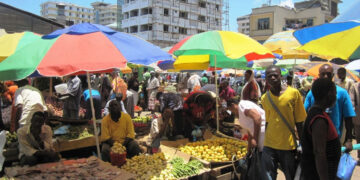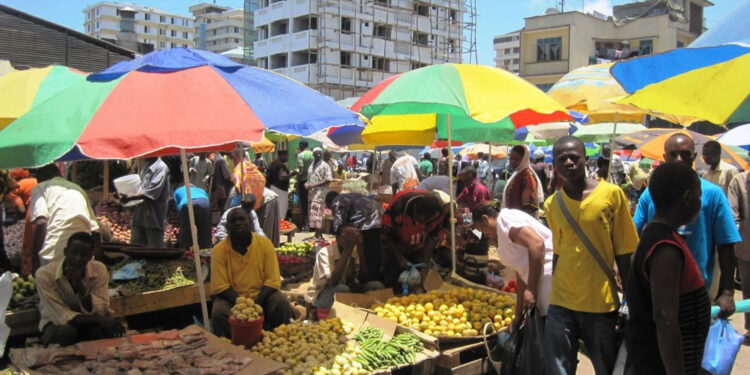Tanzania has announced a sweeping ban on foreign nationals operating small-scale businesses, triggering a diplomatic flare-up with Kenya and stirring broader concerns over regional trade unity in East Africa.
The directive, issued by Trade Minister Selemani Jafo, bars foreigners from participating in 15 economic sectors long associated with informal enterprise. That includes mobile money transfers, tour guiding, small-scale mining, crop buying directly from farms, curio and souvenir shops, barbershops, salons, and even radio and TV operations. The consequences are steep: violators face fines, jail time of up to six months, and the revocation of their visas and work permits.
Authorities argue the move is long overdue, blaming the creeping dominance of foreign players, especially Chinese traders for crowding out local entrepreneurs. The Kariakoo market in Dar es Salaam, once a bastion of Tanzanian vendors, has become a focal point of this tension. Last year’s protests by local traders decried what they saw as foreign encroachment and heavy-handed taxation. Now, Severine Mushi, who heads the traders’ association there, is cheering the government’s action, insisting it protects Tanzanian livelihoods and gives the local economy breathing space.
But across the border, the mood is anything but celebratory. In Kenya, lawmakers and business leaders see the ban as a betrayal of East African unity and a direct violation of protocols under the East African Community (EAC), which guarantees the free movement of people and goods. Bernard Shinali, chair of Kenya’s National Assembly Trade Committee, has already hinted at a tit-for-tat response, pointing out that many Tanzanians are employed in Kenya’s own mining sector. Tourism executive Mohammed Hersi didn’t hold back, branding the ban as a protectionist maneuver that risks strangling regional economic growth. On social media, Kenyans expressed outrage, accusing Tanzania of sabotaging long-standing integration efforts.
This is hardly the first time the two neighbors have clashed over trade. From tariffs to import bans, Tanzania has frequently leaned toward economic nationalism, often to the irritation of its partners. And the latest row arrives at a politically delicate moment. Tensions have been simmering over Tanzania’s handling of Kenyans who traveled to observe the treason trial of opposition leader Tundu Lissu, some of whom faced deportation or alleged mistreatment. The election season only adds fuel: with general polls scheduled for October 2025, analysts say President Samia Suluhu Hassan’s ruling CCM party could be using the ban to shore up domestic support, tapping into economic anxieties and nationalist sentiment.
Kenya’s Foreign Minister Musalia Mudavadi recently pointed out that around 250,000 Kenyans live and work in Tanzania, a reminder of just how deeply intertwined the two economies have become. If tensions continue to mount, Kenya’s parliament may summon Tanzanian trade officials for an explanation. There’s also the possibility of formal mediation through EAC mechanisms, though such efforts have historically moved slowly. Meanwhile, foreign investors in retail and tourism sectors are watching closely, weighing whether Tanzania’s shifting rules still offer a stable environment for business.
For now, Tanzanian small traders are celebrating a policy that promises to reduce competition and protect local markets. But the cost may be steep. By alienating regional allies and undermining economic integration, the ban risks isolating Tanzania at a moment when cooperation is crucial. The coming weeks will reveal whether diplomacy can smooth the rupture or whether retaliatory sparks will turn this trade skirmish into a regional standoff.




































